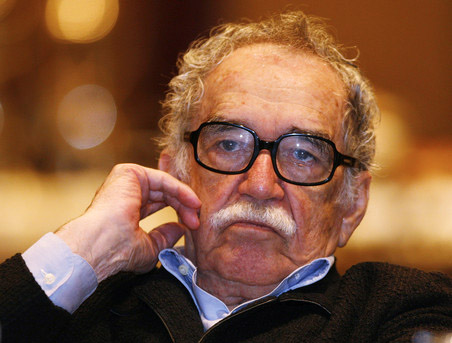By Dalga Khatinoglu
There may be no well-known writer in Latin America, who is not specialist in a certain scientific profession, doesn't know several languages and his works are not tinted more or less with politics.
Writers and poets from Jorge Luis Borges, Octavio Paz, Julio Cortázar, César Aira, Pablo Neruda, Carlos Fuentes and Mario Vargas Llosa all had similar features but none of them were ever as famous as Gabriel García Márquez, passed away on April 17, 2014.
I dare say one of the most important novels of last century, "One Hundred Years of Solitude", was written by Marquez. But I think the novel and its writer both had been misunderstood widely across the globe.
Perhaps no one like me as a media activist knows well how terribly the media has ruined the art by a superficial, trivial and nonsense approach to art works.
In my opinion, what distinguishes Marquez from other writers is his work's form, style and narrative skill, a feature which is rare among other writers.
The British writer, Anthony Powell had once called Marquez the worst selfish rhetoric of a populist writer but I think Powell made such a wrong judgment only because he never realized the ordinary life of a Latin American citizen.
Of course, in comparison with his contemporary writers, Marquez was not a defender of modern values. As we see in the "One Hundred Years of Solitude", the life conditions of its characters deteriorate as the story turn to modern mood. Meanwhile, his support for Cuba's dictator is very confusing to me.
What matters most here is creating certain artistic pieces to shed light on the hidden aspects of life and mixing discovery and creation of the universe. That is what Marquez did perfectly in his works.
Most writers from Shakespeare to Dostoyevsky were never specialists in a certain scientific field or familiar with more than one language. Despite their limited studying, these two writers managed to concentrate and deeply realize the human nature and society.
This applies to Marquez as well. He is a writer with a perfect accuracy who writes down not only his understanding of books and abstract sciences but also the nature of human being and the society. He is a writer who learnt his narrative skill from his superstition grandmother and as he said once wrote the "One Hundred Years of Solitude" by the very same skill. It's noteworthy that Marquez also drew on the styles of famous writers like Borges, William Faulkner and Agatha Christie. He was not only a good writer but also an attentive reader.
Once a critic - I am not sure but as I remember that was from Neo-Novel Movement in France- said about One Hundred Years of Solitude that if we accept that the era of great novels has come to an end, it's now the right time to stand up and take our hats off to show respect to this last novel.
It was a very nice compliment but at the same time dangerous promotion which played a great role in redirecting the global attention to this novel. However, the description also sidelined other important works of Marquez. To me, some of his works like "Chronicle of a Death Foretold" and "No One Writes to the Colonel" are among the think books of Marques which are not less great than One Hundred Years of Solitude.
Another misunderstanding of Marquez works is that his fame is based on the new style he created under the title Magic Realism. But in my opinion, this is completely wrong.
First of all, the style that Marquez used (or perhaps vice versa, the style that chose Marquez) were used earlier by other writers. Secondly, critics have rushed in naming wrongly Marquez style. There is no magic realism. In academic term, realism has its own definition. Magic has nothing to do with realism. Even Marquez himself didn't insist on saying that his style was magic realism. In his works, there is not even one line which does not built on reality. Everything is deeply rooted in his experiences in life.
A broader look at the narrations of Latin American poets and writers may shed more light on the issue. For example, Paz said in an article named "Death Festival" discusses about the Mexicans zeitgeist writing: Our calendar is filled with rituals and festivals. There are certain days during which all parts of the country from tiny villages to big cities began praying, crying and drinking to honor Our Lady of Guadalup and Benito Juarez. These are festivals during which decent people began to get drunk, trust each other. They sympathize with others, discover their brotherhood and even kill themselves to prove that.
Borges creates the same atmospheres in his short stories: A violent and sexy environment tinted with faith, mystery and wondering.
Perhaps, what other Latin American writers have not managed to create in their works is making believable the realities of the society for anyone who may be strange to them. What we consider as imagination are very real in Marquez works.
So it is better to categorize his style as Neo Realism or Post Modernism though his emotional image makes such a categorization difficult.






